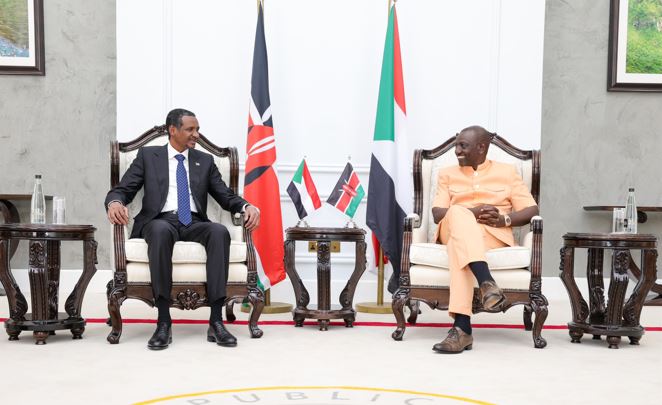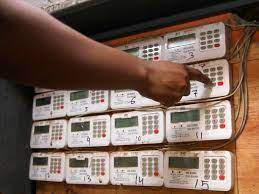Kenya walks diplomatic tightrope on Sudan amid accusations of RSF ties

Mudavadi reaffirmed Nairobi's alignment with the African Union's stance, which suspended Sudan from the continental bloc following the 2021 military takeover.
Kenya has subtly signalled its non-recognition of Sudan's military-led government under General Abdel Fattah al-Burhan, with Foreign Affairs Cabinet Secretary Musalia Mudavadi citing the ongoing "audit" of the regime's legitimacy.
In a tense interview aired Monday evening on Citizen TV, Mudavadi reaffirmed Nairobi's alignment with the African Union's stance, which suspended Sudan from the continental bloc following the 2021 military takeover.
More To Read
- Sudan army makes major gains in South Kordofan, retakes key villages from SPLM-N
- Sexual violence driving mass flight from Sudan to South Sudan: What you need to know
- Why UN’s gradual move back to Khartoum, Sudan is ‘an important step’
- Trump to focus on ending Sudan civil war
- IGAD leads new push for Peace in Sudan as regional and global partners back three-step plan
- UN aid office pushes for ‘unhindered’ humanitarian access in Sudan
"The people in authority in Sudan are not there in a democratic process," Mudavadi said, adding that "Sudan has got a lot of work to do."
However, he stopped short of delivering a decisive statement on Kenya's formal recognition of the General Abdel Fattah-led government.
Despite its suspension, the African Union has continued engaging with Sudan's military authorities.
On Tuesday, the AU Commission (AUC) welcomed the appointment of Kamil Idris as Sudan's new prime minister, describing it as "a step toward inclusive governance."
AUC Chairperson Mahmoud Ali Youssouf noted the development "will contribute meaningfully to ongoing efforts to restore constitutional order and democratic governance in Sudan."
Back in Nairobi, Mudavadi faced sharp questions over Kenya's alleged complicity in facilitating the Rapid Support Forces (RSF), a paramilitary group at the heart of Sudan's brutal civil conflict.
In February, the RSF and allied factions signed a charter in Nairobi aimed at forming a unity government—a move that drew immediate condemnation from Sudan's Transitional Sovereign Council and raised concerns about Kenya's neutrality.
Responding to the allegations, Mudavadi was unequivocal: "What we want is to have peace," he said, denying that Kenya played any role in facilitating the RSF's activities or their political manoeuvring in Nairobi.
Pressed further on claims that Kenya may be involved in gold dealings with the RSF—led by Mohamed Hamdan Dagalo, known as "Hemedti"—Mudavadi responded curtly: "There are no business deals."
He rejected the suggestion that Kenya has enabled RSF-linked gold smuggling.
Yet allegations continue to swirl, especially given that President William Ruto himself has been repeatedly accused, most notably by his former deputy Rigathi Gachagua, of having direct ties to Hemedti through suspected gold laundering networks.
Ruto has yet to personally deny the claims.
When questioned about broader foreign involvement in Sudan's conflict, Mudavadi struck a more diplomatic tone: "A country must engage for peace to be restored," he said—an attempt to balance Kenya's foreign policy doctrine of regional peacebuilding with growing scrutiny over its entanglements.
Top Stories Today












































